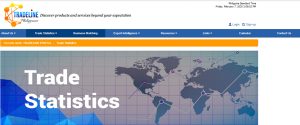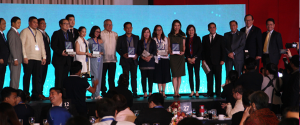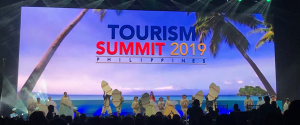
Philippine and German delegates to the benchmarking mission on Dual Training System in Malaysia and Thailand
The Philippines needs to catch up with ASEAN neighbors in the implementation of its Dual Training System (DTS). This conclusion is a result of the recent benchmarking mission to Malaysia and Thailand on Dual Training System conducted last 22-27 October, 2018. The main objective of the mission is to benchmark and network with the Malaysia and Thailand Technical Vocational Education and Training (TVET) systems and approaches with the end view of adoption and potential best practice elements in Dual VET, certification and In-company training which are the essential elements of the Dual Training System (DTS).
The lessons learned include determination of how the Dual VET policy framework in both countries is operationalized on the ground; observation how the Malaysian and Thai Dual DTS models work; gainful and deeper insight into both countries’ experiences through direct interaction with the DTS practitioners; comparison of various approaches and identification of what is adaptable in the Philippines; and instituting networks with Malaysia and Thai Dual VET players.
The Malaysian government fully supported the DTS system in their country, in coordination with the German Chamber of Commerce and Industry-Malaysian Chapter (GCCI-Malaysia), by providing land, building and training facilities and equipment to train those students who opted to take vocational courses as well as their unemployed youths. In turn, GCCI-Malaysia assisted the government by partnering the Malaysian training institutions with multinational companies in terms of technical assistance and acquiring state of the art equipment/ technology or laboratories for use of students and faculties alike. Courses offered in the Malaysian DTS program include Mechatronics, Industrial Management and Logistics Operations Management, Electronics, Automation, Industry 4.0 Specialists course, International Master Craftsman, to name a few. However, unlike in the PH, Malaysia does not implement a ladderized form of education wherein subjects were not credited by the Malaysian higher education institutions when students who took up vocational courses finally opts to enroll in college.
The Thai government also fully supports the DTS system in their country in collaboration with the German Chamber of Commerce and Industry-Thailand (GCCI-Thailand). It can be noted that the DTS implementation in Thailand specifically of the Don Bosco Academy can be replicated in the PH to help strengthen resurgence of the country’s manufacturing sector e.g., students produce products for exporters using equipment and facilities donated by multi-national companies or thru the assistance of the German Federal Republic. In addition, Thailand is implementing a ladderized form of education where subjects being taken in the tech-voc curriculum are being credited by the Thai higher education institutions.
Meanwhile, in order for the PH to catch up, it is recommended that a review and subsequent amendment of the current Dual Training System Law be considered. This is so because in the DTS law, the Technical Education and Skills Development Authority (TESDA) is both the regulator and provider of all technical and vocational trainings in the country, notwithstanding the private training institutions in the country who are to be accredited first by the latter before they can operate. The PH should also formulate strategies and interventions needed by the country’s apprenticeship program as it relates to our current “endo” regime. Apprenticeship programs under the dual training system can last from two (2) to three (3) years. Hence, with our current “endo’ arrangements, this would be impossible.
The said study mission was spearheaded by the AFOS Foundation – K to 12 Plus Project ( a TVET training institution based in Cebu) in collaboration with the German Chamber of Commerce and Industry Philippines (GCCI-PH). Twenty five (25) participants (three (3) Germans and twenty two (22) Filipinos) from private sector, academe and training institutions took part in the said activity. (GTM)
 Tradeline Philippines is a platform beneficial to exporters for it is an integrated export information system that provides regular trade statistics reports, market and product information, supplier and buyer databases, online business matching with foreign buyers and other trade-related information through the web. Exporters are encouraged to register and update company profile thru http://businessmatching.dti.gov.ph.
Tradeline Philippines is a platform beneficial to exporters for it is an integrated export information system that provides regular trade statistics reports, market and product information, supplier and buyer databases, online business matching with foreign buyers and other trade-related information through the web. Exporters are encouraged to register and update company profile thru http://businessmatching.dti.gov.ph.
 “Driving Exports Through Digital Transformation” was this years’ theme for the annual National Export Congress which was successfully conducted last 06
“Driving Exports Through Digital Transformation” was this years’ theme for the annual National Export Congress which was successfully conducted last 06  Moreover, the NEC also gave due recognition and acknowledgment to twenty-one (21) Top Filipino exporters of 2018. They were given recognition based on their track record, excellence and innovation in the delivery of goods and services. Their fortitude and determination to achieve success in producing globally competitive products has greatly contributed to the country’s export revenue.
Moreover, the NEC also gave due recognition and acknowledgment to twenty-one (21) Top Filipino exporters of 2018. They were given recognition based on their track record, excellence and innovation in the delivery of goods and services. Their fortitude and determination to achieve success in producing globally competitive products has greatly contributed to the country’s export revenue. The Department of Trade and Industry-Export Marketing Bureau (DTI-EMB), Export Development Council (EDC) and the Philippine Exporters Confederation, Inc. (PHILEXPORT) cordially invites all exporters, Small and Medium Enterprises, Academe, International Organizations and relevant stakeholders to save the date and participate in this year’s National Export Congress (NEC) 2019 on 06 December 2019, 8:00 -4:00 PM at the Philippine International Convention Center, CCP Complex, Pasay City, with the theme “DRIVING EXPORTS THROUGH DIGITAL TRANSFORMATION”.
The Department of Trade and Industry-Export Marketing Bureau (DTI-EMB), Export Development Council (EDC) and the Philippine Exporters Confederation, Inc. (PHILEXPORT) cordially invites all exporters, Small and Medium Enterprises, Academe, International Organizations and relevant stakeholders to save the date and participate in this year’s National Export Congress (NEC) 2019 on 06 December 2019, 8:00 -4:00 PM at the Philippine International Convention Center, CCP Complex, Pasay City, with the theme “DRIVING EXPORTS THROUGH DIGITAL TRANSFORMATION”. The Export Development Council (EDC) in partnership with the Tourism Infrastructure and Enterprise Zone Authority (TIEZA) continuously supports Philippine Exporters by giving travel tax exemption incentives through Executive Order (EO) 589 for the past 12 years.
The Export Development Council (EDC) in partnership with the Tourism Infrastructure and Enterprise Zone Authority (TIEZA) continuously supports Philippine Exporters by giving travel tax exemption incentives through Executive Order (EO) 589 for the past 12 years.
 The Department of Tourism (DOT) in collaboration with Go Negosyo and other partners like the ASEAN Business Advisory Council, Department of Foreign Affairs, Tourism Board of the Philippines, Philippine Chamber of Commerce and Industry and the Filipino Chinese Chamber of Commerce and Industry , conducted the country’s First National Tourism Summit last 02 May 2019 held at the World Trade Center in Pasay City.
The Department of Tourism (DOT) in collaboration with Go Negosyo and other partners like the ASEAN Business Advisory Council, Department of Foreign Affairs, Tourism Board of the Philippines, Philippine Chamber of Commerce and Industry and the Filipino Chinese Chamber of Commerce and Industry , conducted the country’s First National Tourism Summit last 02 May 2019 held at the World Trade Center in Pasay City.


 As the fourth industrial revolution or Industry 4.0 gain momentum, the National Wages and Productivity Commission (NWPC), an attached agency of the Department of Labor and Employment (DOLE), focused its 2018 National Productivity Conference on people-centric technologies & innovation for MSMEs. DOLE Undersecretary Ciriaco Lagunsad, III pointed out that the on-going concern on inflation can also be addressed by improving the productivity of producers which will influence prices. As such, he emphasized the need to embrace new technologies, but put people in control of technology.
As the fourth industrial revolution or Industry 4.0 gain momentum, the National Wages and Productivity Commission (NWPC), an attached agency of the Department of Labor and Employment (DOLE), focused its 2018 National Productivity Conference on people-centric technologies & innovation for MSMEs. DOLE Undersecretary Ciriaco Lagunsad, III pointed out that the on-going concern on inflation can also be addressed by improving the productivity of producers which will influence prices. As such, he emphasized the need to embrace new technologies, but put people in control of technology.